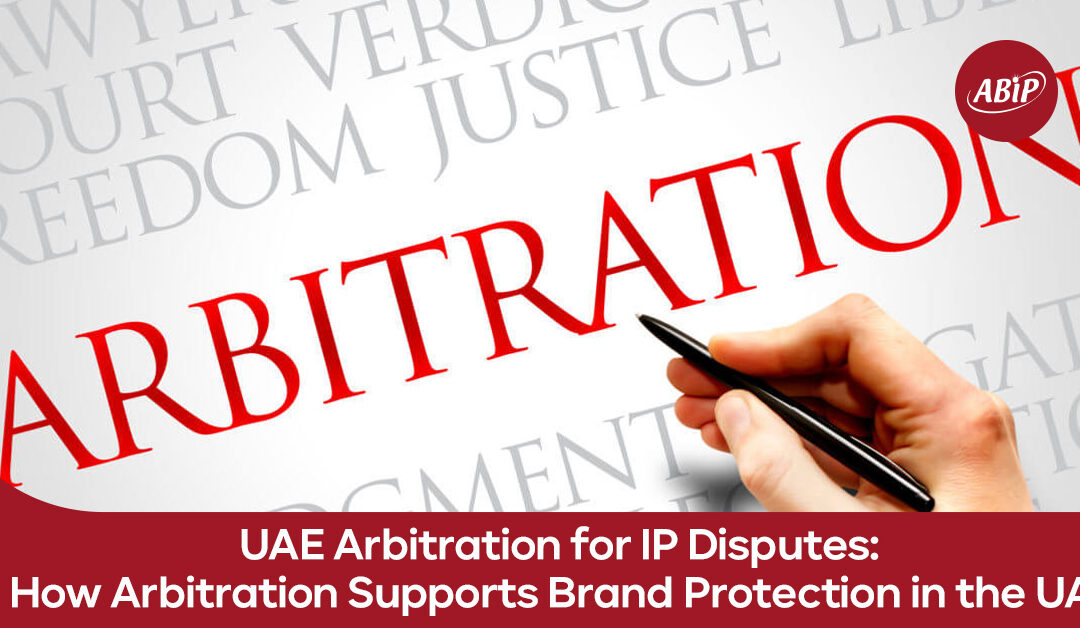UAE Arbitration for IP Disputes is becoming an increasingly strategic approach for businesses aiming to protect their brand assets in a complex commercial environment. The United Arab Emirates (UAE) is a thriving hub for international trade and innovation, making it vital for companies to safeguard their intellectual property (IP). While traditional litigation has long been the standard method for dispute resolution, arbitration is now emerging as a preferred alternative due to its confidentiality, efficiency, and enforceability.
IP Arbitration UAE: A Strategic Choice for Brand Owners
Choosing IP Arbitration UAE over conventional court proceedings offers several advantages. Arbitration provides a private, neutral, and efficient forum for resolving disputes related to trademarks, patents, copyrights, and trade secrets. In the UAE, institutions like the Dubai International Arbitration Centre (DIAC) and the Abu Dhabi Commercial Conciliation and Arbitration Centre (ADCCAC) have recognized panels with expertise in IP law.
Confidentiality is one of arbitration’s strongest benefits. Unlike litigation, arbitration keeps sensitive brand details and proprietary information out of the public domain. For businesses that prioritize their reputation and trade secrets, this is a critical factor.
Moreover, arbitration awards in the UAE are enforceable under the New York Convention, which the UAE is a signatory to. This means businesses can seek enforcement in over 160 countries, adding an international layer of brand protection.
Arbitration Brand Protection UAE: Case for Alternative Dispute Resolution
Arbitration Brand Protection UAE extends beyond dispute resolution; it acts as a proactive measure in preserving brand integrity. Incorporating arbitration clauses in IP agreements ensures that if disputes arise, they are addressed swiftly and with minimal damage to the brand.
Alternative Dispute Resolution UAE IP mechanisms like arbitration help avoid the long delays and public exposure typical of court cases. This discretion is particularly important in the fast-paced sectors of fashion, technology, and consumer goods, where brand value is deeply tied to reputation and market perception.
For example, using DIAC IP Arbitration or opting for WIPO Arbitration UAE through the World Intellectual Property Organization allows for domain-specific expertise, resulting in better-informed decisions and fairer outcomes.
UAE IP Dispute Resolution Arbitration vs Litigation
In comparing UAE IP Dispute Resolution Arbitration to litigation, the differences in cost, speed, and flexibility become clear. Arbitration allows parties to select their arbitrators, choose governing laws, and set procedural rules, all of which can streamline the process.
Litigation, on the other hand, is subject to court schedules and formalities, often taking years to resolve. For fast-moving startups and established corporations alike, this lag can mean irreparable harm to a brand’s market position.
Another point in favor of arbitration is Confidential Arbitration UAE IP, which helps maintain trust with stakeholders and investors. Public lawsuits can generate negative press, potentially affecting share prices or market relationships.
Lastly, the UAE Arbitration Award Enforceability makes it easier for international companies to protect their IP assets across borders. With streamlined enforcement mechanisms, arbitration becomes a global solution for brand protection.
Arbitration, A Powerful Ally in IP Protection
As more companies seek innovative ways to secure their competitive edge, UAE Arbitration for IP Disputes presents a compelling avenue for brand protection. Whether it’s through DIAC, ADCCAC, or international bodies like WIPO, arbitration offers a flexible, confidential, and enforceable path to resolution.
For brand owners, choosing arbitration is not just about solving disputes, it’s about controlling the narrative, preserving value, and ensuring longevity in the market. In the dynamic business environment of the UAE, where reputation and IP assets are intertwined, arbitration is not just a tool; it’s a strategic necessity.

